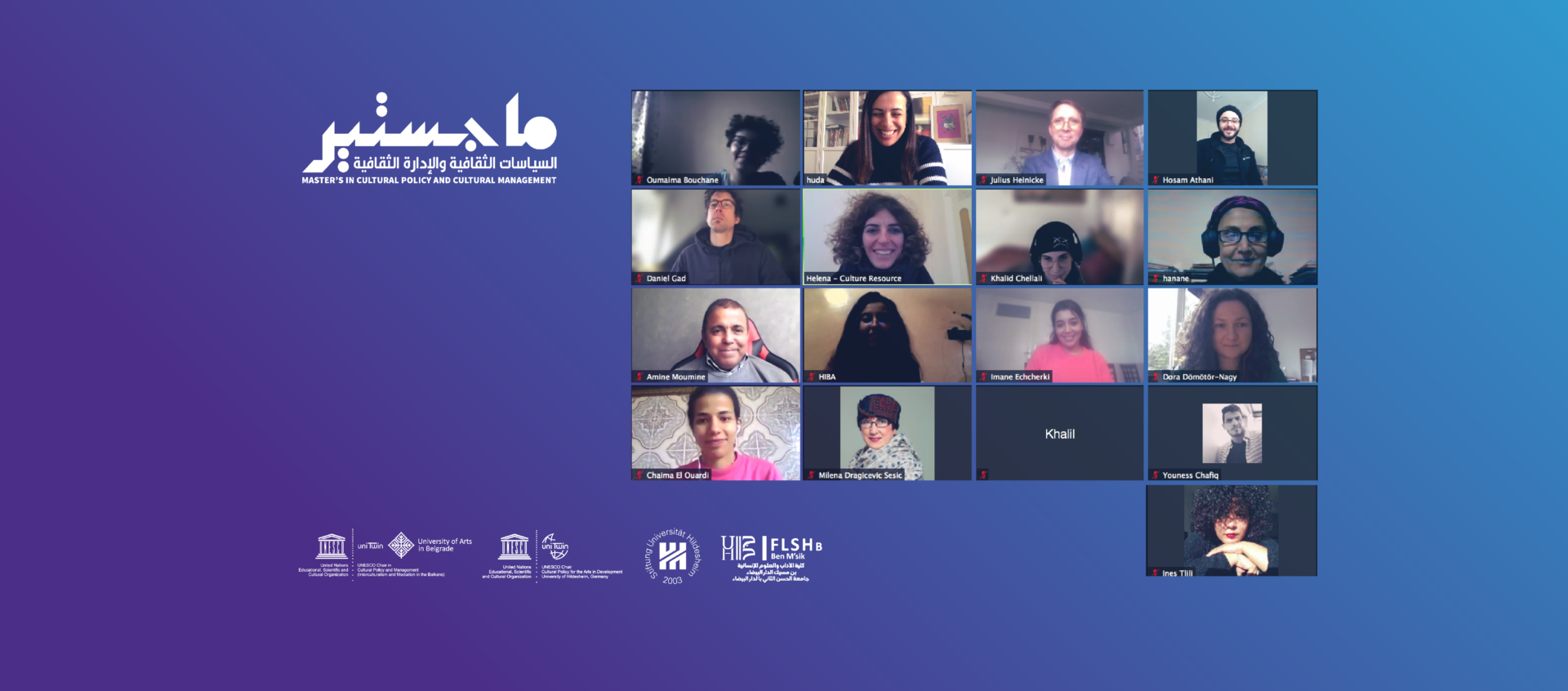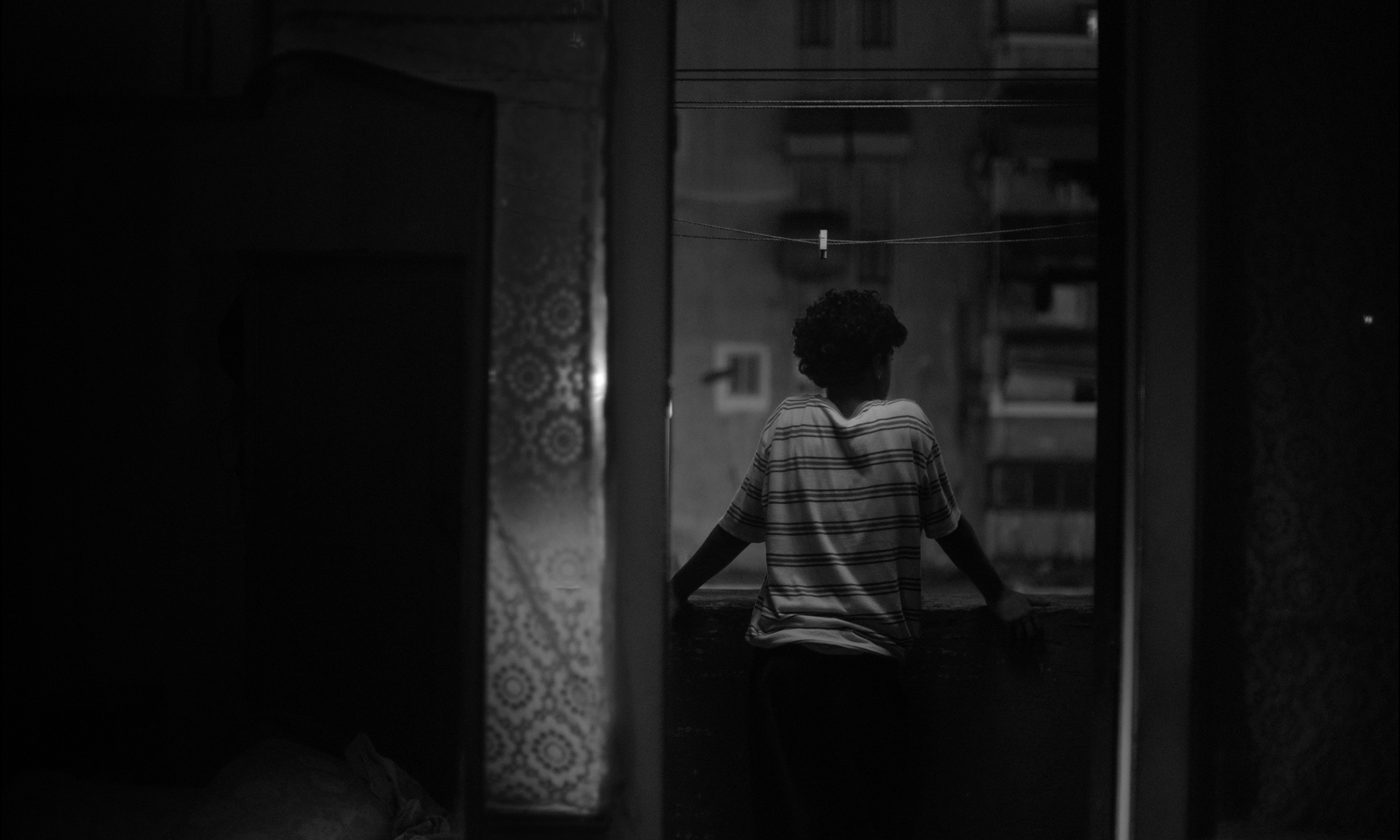On 11 and 12 February 2022, an online colloquium was held for the 2020-2022 cohort of the Masters of Cultural Policy and Cultural Management program. The 17 students in this cohort have just completed their third semester and are about to embark on their MA theses. The two-day colloquium gave them the opportunity to present their thesis proposals and receive feedback from a pool of experts involved in the program.
The presentations were grouped according to three general themes: cultural policies, cultural entrepreneurship and cultural management. The students delivered their presentations outlining the main questions they plan to explore in their research, their hypotheses, and their methodology, and the experts offered suggestions on the framing of the questions, methodology and possible literature to consult.
The pool of experts consisted of: Julius Heinicke, Birgit Mandel, Daniel Gad, Katrin Lohbeck and Nicola Scherer of Hildesheim University; Amine Moumine and Abdelmajid Bouziane of Hassan II University; Helena Nassif and Hanane Hajj Ali of Culture Resource; as well as Milena Sesic, the UNESCO Chair in Cultural Policy and Management at the University of Belgrade.
Both students and experts shared feedback that the colloquium was a valuable experience, the topics innovative and the deliberations thought provoking. The presented theses themes covered a wide range of pertinent issues, from the sociological (focussing on understanding the access to culture challenges affecting youth, women, ethnic groups, or disadvantaged sectors of society), to the political (investigating the influence of certain larger trends such as pan-Africanism or globalisation on culture), to the technological (the impacts of digitalisation or social media on culture) and managerial issues (challenges and opportunities for cultural entrepreneurship, independent artistic production and funding sources).
The MA program is implemented in collaboration with Hassan II University in Casablanca, Hildesheim University in Germany, the Hildesheim UNESCO Chair for Cultural Policies for Arts in Development, and the UNESCO Chair for Cultural Policies of Belgrade University. The program aims to develop a new generation of researchers, cultural managers, policy makers, and academics equipped to contribute to cultural practices in their countries and in the Arab region, and to apply a strategic approach in their work whether in the public cultural sector, the creative industries, or the non-profit or independent cultural sector.





